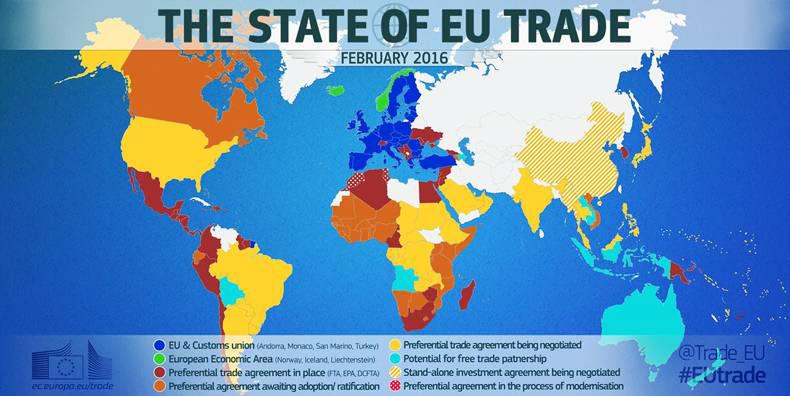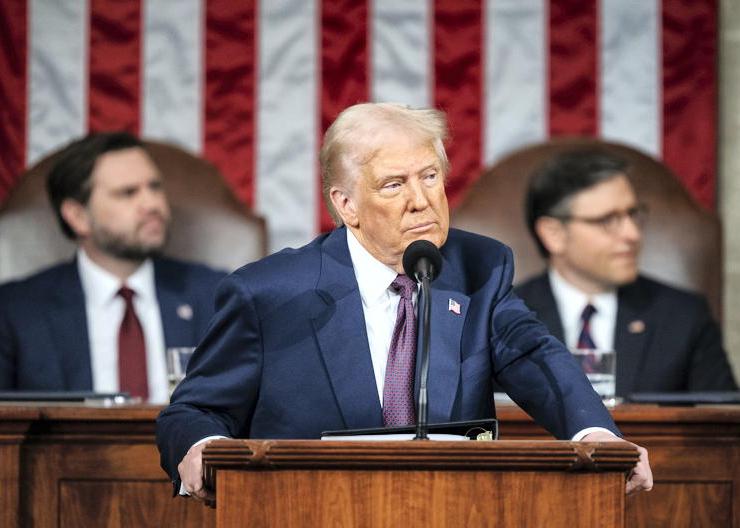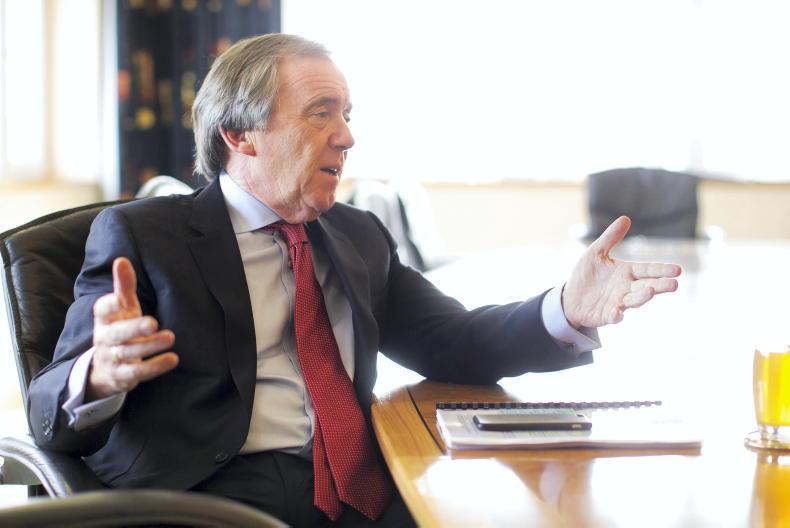For most of the past year, it appeared that trade deals would be negotiated between virtually all the major trading blocks. Yet within the space of a few weeks, it looks that even those that were agreed but not ratified look shaky. What has happened?
Elections are fought on a mix of policy promises that are frequently not implemented, personal charisma, and a huge effort by candidates to demonstrate that they can be trusted. Both Trump and Clinton alienate many voters, but one area of policy on which they seem to be outbidding each other is a protectionism policy to defend US jobs.
Trump is an accepted maverick, but it is more difficult for Clinton. This week, she categorically stated her opposition to TPP, the trade deal with the Pacific Rim countries. TPP was agreed last year and current President Barack Obama is trying to have it ratified before he leaves office. Ironically, when it was at an advanced stage of negotiation while Clinton was still Secretary of State in the first Obama term, she was on record as saying that TPP would be the gold standard for trade deals.
Whatever about TPP, the mood in Washington for the next administration looks to have seriously hit TTIP, the trade discussions between the US and the EU. These negotiations were moving into the difficult territories of agriculture, protected geograpical indications (PGIs) and dispute resolution mechanisms, and there was plenty of conflict building up. This was evidenced by the US attack on EU Commissioner Hogan, a robust defender of EU agriculture.
Brexit
Aside from US cooling, there is also the issue of the EU now having more urgent business closer to home with the Brexit negotiations set to move centre stage from later this year or early next.
From an Irish farming perspective, there is always a great fear that in trade deal negotiations, EU agriculture will be sacrificed to accommodate the powerful automobile and pharmaceutical industries.
Yet we have an interest in the US now that we are approved beef exporters to that market. The quota we supply under is just 64,000t annually. With Brazil now about to start using that, it is likely that it will be filled very soon and we would then have to pay tariff at 26%, making already marginal business impossible. The US may in time grant Brazil its own quota as it has with Australia, New Zealand, and Uruguay but it is unlikely to do so for the EU outside of TTIP.
Mercosur
As for Mercosur, the first round of negotiations in the latest phase of discussions is due to take place next month. This is the one that really scares Irish farmers as there is absolutely no upside, particularly for beef producers.
However, Mercosur is riddled as is so often the case by internal disagreements. Uruguay and Argentina are clear in their focus, but Brazil is dominated by internal political instability and the group is in conflict with Venezuela about it meeting the criteria for full membership.
Irish farmers will notbe unduly concerned if Mercosur countries are not in a position to progress trade discussions quickly.
Read more
Full coverage of international trade issues:
For most of the past year, it appeared that trade deals would be negotiated between virtually all the major trading blocks. Yet within the space of a few weeks, it looks that even those that were agreed but not ratified look shaky. What has happened?
Elections are fought on a mix of policy promises that are frequently not implemented, personal charisma, and a huge effort by candidates to demonstrate that they can be trusted. Both Trump and Clinton alienate many voters, but one area of policy on which they seem to be outbidding each other is a protectionism policy to defend US jobs.
Trump is an accepted maverick, but it is more difficult for Clinton. This week, she categorically stated her opposition to TPP, the trade deal with the Pacific Rim countries. TPP was agreed last year and current President Barack Obama is trying to have it ratified before he leaves office. Ironically, when it was at an advanced stage of negotiation while Clinton was still Secretary of State in the first Obama term, she was on record as saying that TPP would be the gold standard for trade deals.
Whatever about TPP, the mood in Washington for the next administration looks to have seriously hit TTIP, the trade discussions between the US and the EU. These negotiations were moving into the difficult territories of agriculture, protected geograpical indications (PGIs) and dispute resolution mechanisms, and there was plenty of conflict building up. This was evidenced by the US attack on EU Commissioner Hogan, a robust defender of EU agriculture.
Brexit
Aside from US cooling, there is also the issue of the EU now having more urgent business closer to home with the Brexit negotiations set to move centre stage from later this year or early next.
From an Irish farming perspective, there is always a great fear that in trade deal negotiations, EU agriculture will be sacrificed to accommodate the powerful automobile and pharmaceutical industries.
Yet we have an interest in the US now that we are approved beef exporters to that market. The quota we supply under is just 64,000t annually. With Brazil now about to start using that, it is likely that it will be filled very soon and we would then have to pay tariff at 26%, making already marginal business impossible. The US may in time grant Brazil its own quota as it has with Australia, New Zealand, and Uruguay but it is unlikely to do so for the EU outside of TTIP.
Mercosur
As for Mercosur, the first round of negotiations in the latest phase of discussions is due to take place next month. This is the one that really scares Irish farmers as there is absolutely no upside, particularly for beef producers.
However, Mercosur is riddled as is so often the case by internal disagreements. Uruguay and Argentina are clear in their focus, but Brazil is dominated by internal political instability and the group is in conflict with Venezuela about it meeting the criteria for full membership.
Irish farmers will notbe unduly concerned if Mercosur countries are not in a position to progress trade discussions quickly.
Read more
Full coverage of international trade issues:
BrexitTTIPTPPMercosur 








SHARING OPTIONS